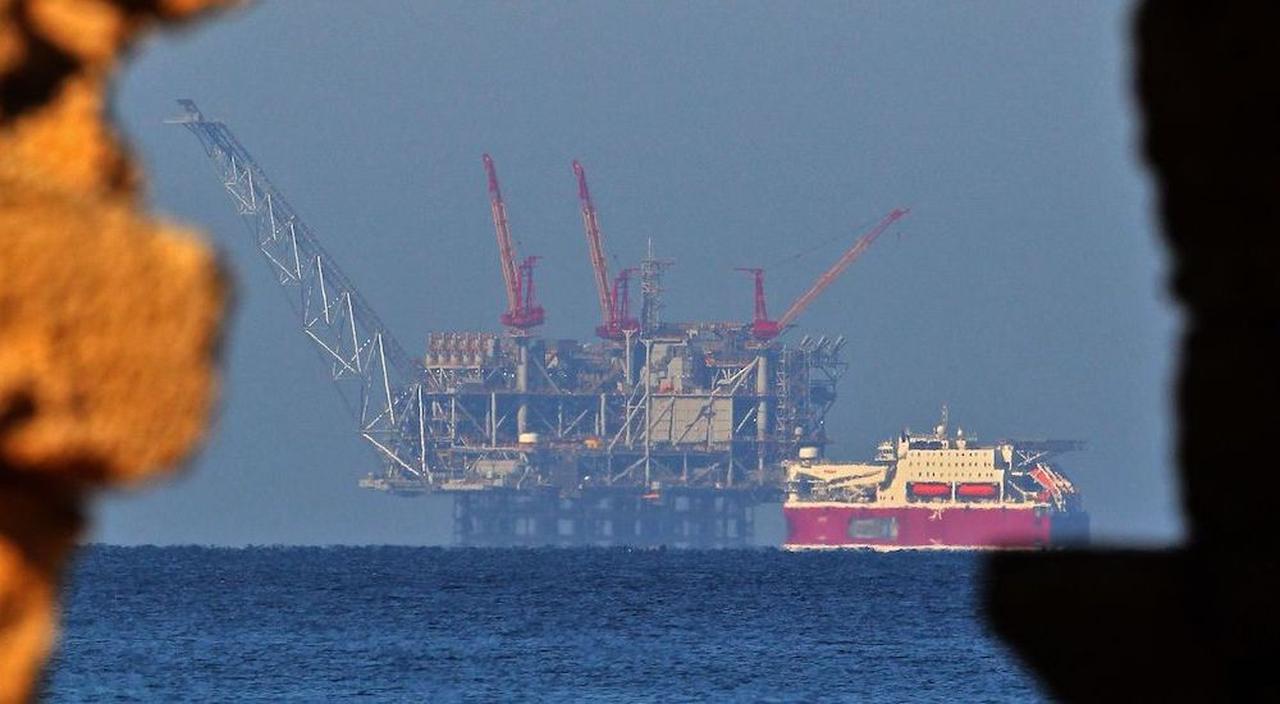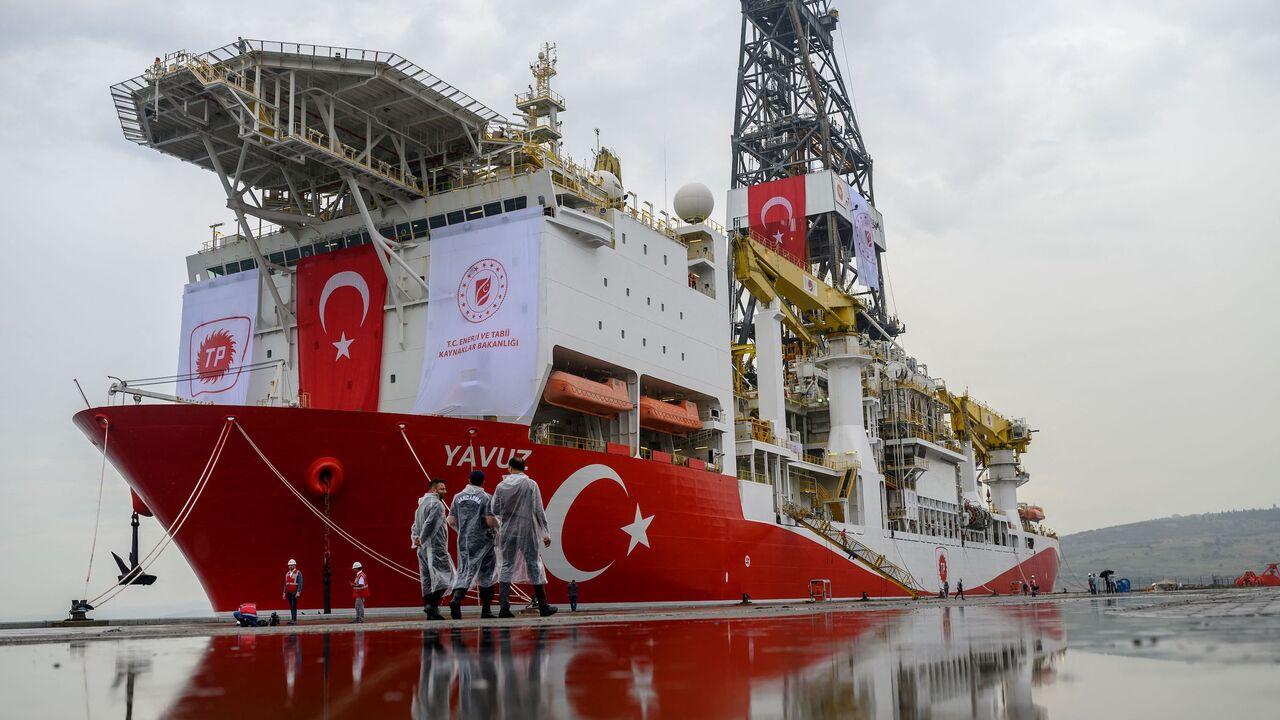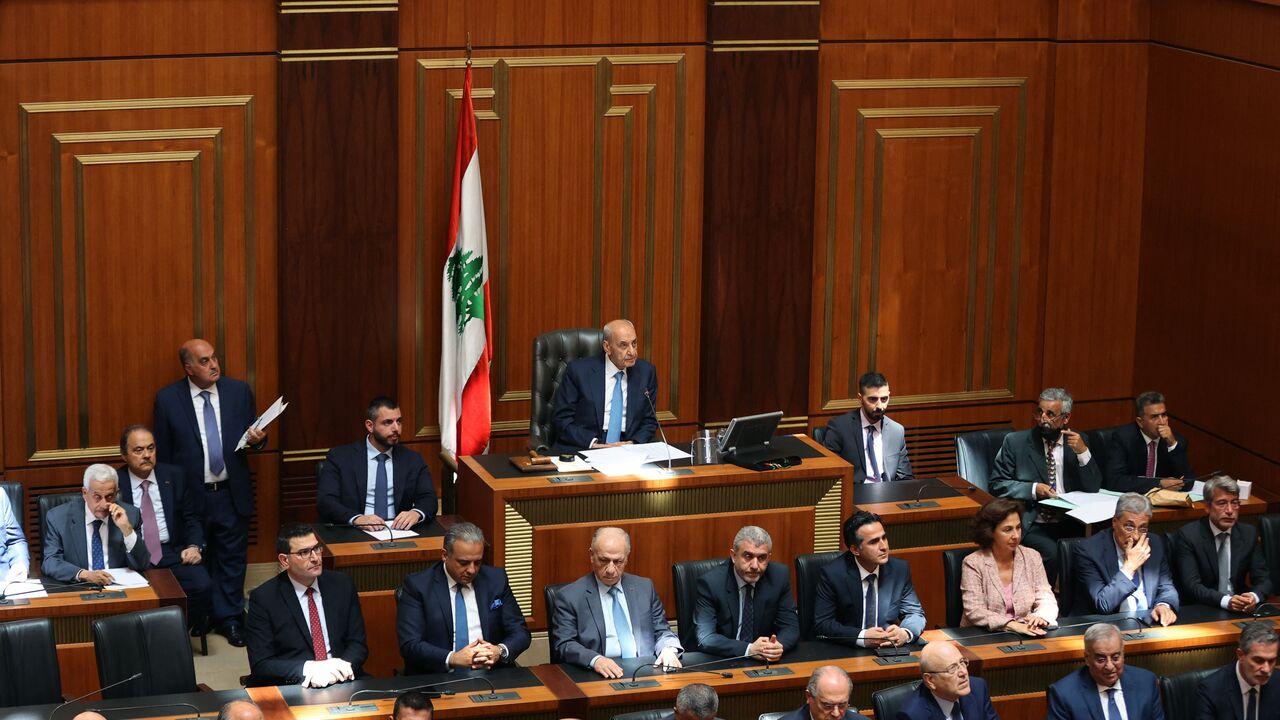
Lebanese experts have criticized their government's approval of a maritime boundary delimitation agreement with the Greek Cypriot Administration (GCA), stating the deal grants the administration greater territorial concessions and was negotiated without coordination with Syria.
Lebanon's Cabinet approved the maritime boundary delimitation agreement with the Greek Cypriot Administration at an Oct. 23 meeting, sparking considerable debate.
The agreement is expected to be sent to the Lebanese Parliament in the coming weeks for ratification.
The controversial agreement stems from earlier negotiations conducted between Lebanon and the Greek Cypriot Administration during 2006-2007. The Cabinet has now approved the current agreement for parliamentary consideration.

Speaking to state-run Anadolu Agency (AA) on Tuesday, Lebanese Economist Ali Nureddin criticized the agreement, stating that Lebanon lacked experience and technical knowledge during the original 2006-2007 negotiations.
Nureddin noted: "The result of those negotiations was very bad for Lebanon, which is why the Parliament did not approve it in 2007 and it remained pending. Because it contained a lot of injustice toward the Lebanese side."
Nureddin emphasized that the government adopted the "median line" technique in the new agreement, which grants the Greek Cypriot Administration greater maritime territory shares.
Nureddin said Lebanon had legal grounds to negotiate for a larger share but failed to do so, resulting in a territorial loss estimated between 2,500 and 5,000 square kilometers. He added that the agreement approved by the Cabinet represented the worst possible outcome, as Lebanon did not properly defend its rights.
Nureddin pointed out that Syria and Türkiye still have disputes with the Greek Cypriot Administration. He criticized the Lebanese government for approving the agreement without consulting Syria first.
"I believe Lebanon's national interest would have been to first negotiate with the Syrians about the borders of the marine region between us, and then, as a united side, both of us would go together to negotiate with the Greek Cypriot Administration," Nureddin added.
Emphasizing Türkiye's important role in the region, Nureddin noted, "It is not in our interest to move away from the relationship network of Syria and Türkiye. Syria has not yet drawn its borders with Cyprus. Before we go alone and make a unilateral border agreement with Cyprus without considering these partners, we should have taken them into account."
Nureddin questioned why the government acted hastily, stating, "I don't know why we were in such a hurry, meaning time was in our favor, not theirs. We could have applied more pressure and taken our time to negotiate with them. They would have been anxious and would have made concessions until the last moment to draw the borders."

Speaking to AA, researcher and writer Munir Rabi criticized the government that approved the agreement, characterizing its actions as "hasty," stating: "Lebanon went into border delimitation with Cyprus without coordinating with Syria. When no progress has yet been made on border delimitation with Syria, the government's hasty behavior in determining borders with the Cypriot side surprised the Lebanese."
Rabi warned that approving the agreement without coordination with Syria could undermine Damascus in future negotiations with the Greek Cypriot Administration on the issue.
"Türkiye's position needs to be watched and observed." He recalled that "Türkiye requested in 2011 from the Lebanese government that was in office that it not draw borders with Cyprus without an agreement with Ankara," Rabi stated.

Speaking to AA, oil and gas expert Laury Haytayan stated: "After the agreement between Lebanon and Israel was signed, the government was expected to begin border delimitation negotiations with the Greek Cypriot Administration."
Haytayan called on the government to explain to the public the technical and legal details of the agreement that sparked controversy.
Haytayan also drew attention to the reestablishment of relations between Lebanon and Syria, stating that "there should be negotiations between the two sides on maritime boundary agreements as well."
Haytayan noted uncertainty about whether the Lebanese government consulted with Türkiye regarding the agreement with the Greek Cypriot Administration. He reminded that Türkiye protects the rights of the Turkish Republic of Northern Cyprus (TRNC), emphasizing the importance of considering Türkiye's position.
Lebanon and the Greek Cypriot Administration initially reached a mutual understanding on maritime boundary delimitation in 2007, but the Lebanese Parliament rejected the agreement at that time.
In October 2022, the Lebanese Presidency announced that an agreement had been reached with the Greek Cypriot Administration on a formula for the disputed maritime border issue.
According to Lebanese media reports, the process accelerated after Lebanese President Joseph Aoun visited the Greek Cypriot Administration on July 9. On July 11, the Cabinet of Ministers decided to establish a technical committee for the purpose of determining maritime boundaries between Lebanon and the Greek Cypriot Administration.
In September, delegations from both sides met to discuss the final version of the draft agreement.
Lebanon's maritime borders include Israel to the south, Syria to the north, and the island of Cyprus to the west. The country has maritime borders with all three entities. Following announcements of rich gas and oil resources in the Eastern Mediterranean, Lebanon took steps for indirect or direct negotiations with the two countries and the Greek Cypriot Administration.
Israel and Lebanon signed their maritime boundary delimitation agreement in 2022 following extensive indirect negotiations.